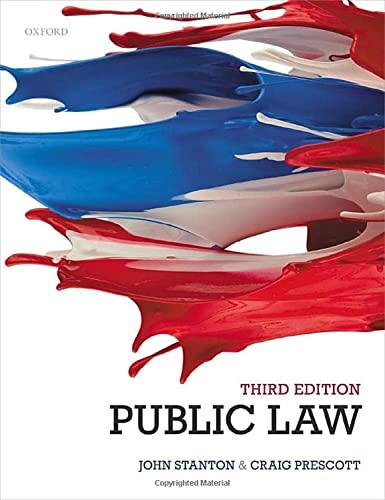Question
Question 58 In a patient with the typical chest pain of myocardial infarction (MI) and no other criteria for thrombolysis would highly elevated cardiac enzymes
Question 58 In a patient with the typical chest pain of myocardial infarction (MI) and no other criteria for thrombolysis would highly elevated cardiac enzymes indicate thrombolysis? Question 59 I cannot figure out the role of an acetylcholinesterase inhibitor in post myocardial infarction from Conn's Current Therapy and Swanson's Family Practice. Can you help? Question 60 Can thrombolytic therapy for myocardial infarction (MI) be started in patients who have cardiac pain and raised cardiac markers? Can streptokinase be given irrespective of electrocardiogram (ECG) changes (according to some books, ST elevation has to be present)? Question 61 Can carvedilol be used in an elderly patient who developed left ventricular failure after a very recent myocardial infarction, or should it wait until the condition becomes stable? Question 62 I have seen some patients with chronic rheumatic heart disease with no obvious evidence of rheumatic fever (i.e. they could not recall if there was an episode of severe infection with subsequent fever and joint pain). So, actually, how is chronic rheumatic heart disease diagnosed? Question 63 If a young patient presents with hemiparesis and rheumatic atrial fibrillation and is already on oral anticoagulant, with an international normalized ratio (INR)3 and a normal computed tomography (CT) scan done 2 hours after onset, should he receive heparin for prophylaxis against further embolism? Should aspirin be combined with oral anticoagulant later, or should target INR be increased? Question 64 When treating mitral stenosis using a balloon valvotomy, how come no thrombus develops at the site of the atrial septum or at the separated commissure of the valve leaflets? Question 65 Why does a mitral stenosis produce a loud S1?Cardiovascular disease 13 127 Question 66 Why is the mitral valve more affected than any other valve in the heart in most valvular diseases? Question 67 What is William's syndrome (supravalvular obstruction)? Why does hypercalcaemia occur with this syndrome? Question 68 Kindly tell me all the causes postulated for the collapsing pulse seen in aortic regurgitation.
Step by Step Solution
There are 3 Steps involved in it
Step: 1

Get Instant Access to Expert-Tailored Solutions
See step-by-step solutions with expert insights and AI powered tools for academic success
Step: 2

Step: 3

Ace Your Homework with AI
Get the answers you need in no time with our AI-driven, step-by-step assistance
Get Started


